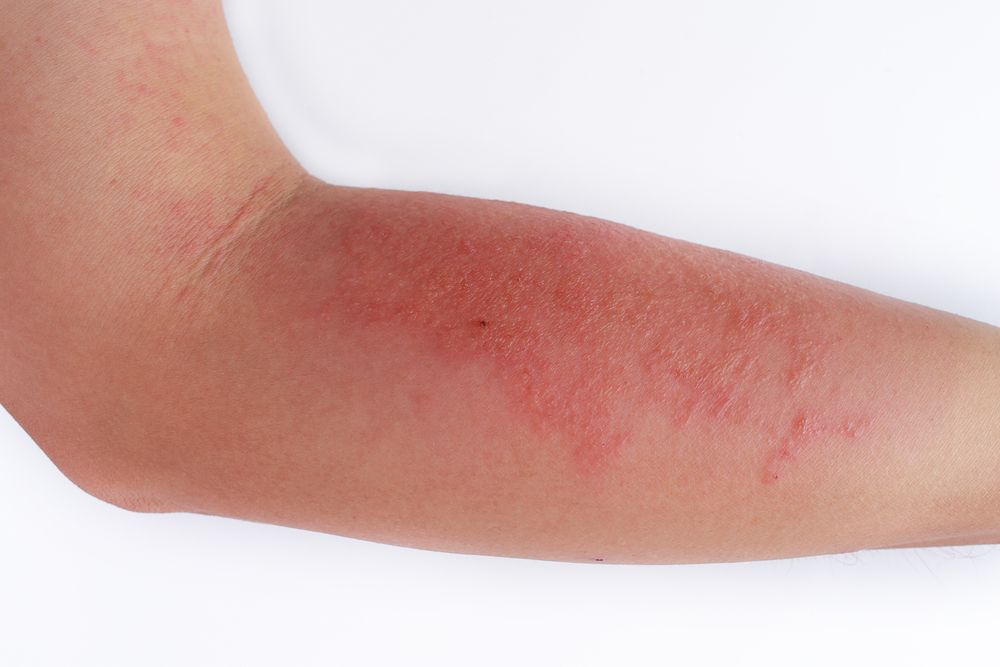- Acne
- Actinic Keratosis
- Aesthetics
- Alopecia
- Atopic Dermatitis
- Buy-and-Bill
- COVID-19
- Case-Based Roundtable
- Chronic Hand Eczema
- Chronic Spontaneous Urticaria
- Drug Watch
- Eczema
- General Dermatology
- Hidradenitis Suppurativa
- Melasma
- NP and PA
- Pediatric Dermatology
- Pigmentary Disorders
- Practice Management
- Precision Medicine and Biologics
- Prurigo Nodularis
- Psoriasis
- Psoriatic Arthritis
- Rare Disease
- Rosacea
- Skin Cancer
- Vitiligo
- Wound Care
Article
Atopic dermatitis drugs in development
Author(s):
Stay up-to-date on the most recent clinical advances in atopic dermatitis.
“There is ... a wide range of new molecules under investigation that may provide additional personalization and the potential for better disease control," says Linda Stein Gold, M.D., Henry Ford Health System, Detroit.

Dr. Stein Gold

Atopic dermatitis is a chronically relapsing inflammatory skin disease whose pathogenesis is complex, involving epidermal barrier dysfunction and cutaneous immune abnormalities. Persistent itch is the most burdensome quality-of-life issue reported by adults with atopic dermatitis, according to several surveys.
“In addition, concordance rates of up to 0.86 in monozygotic and 0.41 in dizygotic twins clearly indicate there is a genetic predisposition for the disease with roughly 70% of patients having a positive family history,” said Linda Stein Gold, M.D., director of clinical research at Henry Ford Health System in Detroit.
RELATED: Pay attention to pain caused by itch in atopic dermatitis
Fortunately, an improved understanding of pathogenic drivers has led to more targeted treatments.
“There is also a wide range of new molecules under investigation that may provide additional personalization and the potential for better disease control,” said Dr. Stein Gold, who spoke on atopic dermatitis at the Fall Clinical Dermatology Conference.
IN THE PIPELINE
Tralokinumab (anti-IL-13) is a monoclonal antibody in phase 3 trials to treat moderate-to-severe atopic dermatitis, for which a phase 2 study of 153 adults showed that compared to placebo, either a 150 mg or a 300 mg dose of the drug every two weeks achieved significantly better outcomes on SCORing Atopic Dermatitis (SCORAD-50) at 12 weeks.
Five other monoclonal antibodies that are in phase 2 trials for the same indication include:
- GBR-830 (anti-OX40)
- Lebrikizumab (anti-IL-13)
- Tezepelumab (anti-thymic stromal lymphopoietin[TSLP])
- Fezakinumab (anti-IL-22)
- Nemolizumab (anti-IL-31CX)
A lebrikizumab phase 3 (IGA) study of 209 adults also concluded that compared to placebo, three different regimens of the drug performed significantly better at week 12, again based on SCORAD-50: a single dose of 125 mg, a single dose of 250 mg and 125 mg every four weeks with the later faring the best.
For small molecule therapy that targets moderate-to-severe disease, there are four investigational drugs in phase 3 trials:
- Upadacitinib (Janus kinase [JAK] 1 inhibitor)
- Abrocitinib (PF-04965842, also a JAK 1 inhibitor)
- Baricitinib (JAK 1/2 inhibitor)
- Ruxolitinib (also a JAK 1/2 inhibitor)
A baricitinib phase 3 study of 624 adults found there was a significant improvement in itch report as early as week 1 in the 4 mg drug group and as early as week 2 in the 2 mg drug group compared to placebo. The two treated groups also showed improvements in nighttime awakening, skin pain, the Dermatology Life Quality Index (DLQI) and the Patient-Oriented Eczema Measure (POEM).
RELATED: Atopic dermatitis treatment advances on psoriasis research
Two small molecule treatments for moderate-to-severe atopic dermatitis are in phase 2 trials:
- ZPL-389 (histamine 4 receptor [H4R] inhibitor)
- Apremilast (phosphodiesterase type 4 [PDE4] inhibitor)
For topical treatment of moderate-to-severe disease, the compound tapinarof/benvitimod, which targets the aryle hydrocarbon receptor (AhR), is in phase 3 trials.
Three other topicals, in phase 2 trials, for moderate-to-severe atopic dermatitis are tofacitinib (JAK 1/2), ruxolitinib and delgocitinib (JAK 1 and 3).
Finally, two topicals in phase 2 trials for mild-to-moderate disease are roflumilast (PDE-4) and RVT-501 (also PDE-4).
Disclosures:
Dr. Linda Stein Gold is a consultant and investigator for several manufacturers in the atopic dermatitis space.
References:
Stein Gold L. A look at the recent clinical advances made in atopic dermatitis. Presented at the Fall Clinical Dermatology Conference. Oct 17, 2019; Las Vegas, NV.
Newsletter
Like what you’re reading? Subscribe to Dermatology Times for weekly updates on therapies, innovations, and real-world practice tips.











